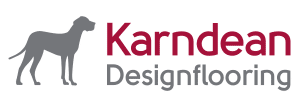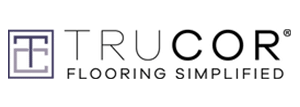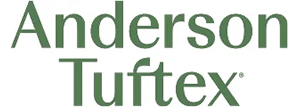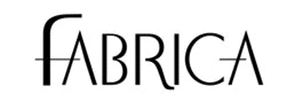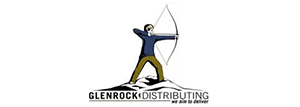Vinyl Plank vs. Vinyl Sheet Flooring: Which Is Right for Your Denver Home?

Vinyl flooring continues to be one of the most popular choices for Denver homeowners thanks to its durability, style variety, and affordability. When choosing between vinyl plank and sheet vinyl flooring, the decision often depends on the room’s purpose, the level of moisture, and the desired look. Luxury vinyl plank (LVP) offers a realistic wood appearance, making it a stylish option for living rooms, hallways, and kitchens. It’s easy to replace individual planks if needed, and its strong wear layer makes it highly resistant to foot traffic, making it a smart investment in long-term value.
Sheet vinyl flooring, on the other hand, provides seamless waterproof protection—ideal for bathrooms, kitchens, and laundry rooms. Its low-maintenance surface resists spills and cleans up quickly, which appeals to busy homeowners. Both types of vinyl flooring perform well in Denver’s climate, handling temperature shifts without warping or cracking. Installation times vary slightly, with luxury vinyl plank typically taking one to two days, and sheet vinyl requiring an extra day in most homes.
Denver showrooms often display a wide range of flooring styles, from realistic wood grain patterns in vinyl tile and hardwood finishes to waterproof options for high-moisture spaces. Laminate, tile, and carpet are also available, but many buyers prefer vinyl flooring for its cost-effective blend of comfort, resilience, and modern design. Whether you’re upgrading a kitchen with luxury vinyl plank or choosing sheet vinyl for a basement, local flooring specialists help match your needs to the best material. The right product not only meets your lifestyle but also adds value to your home over time.
Key Differences Between Vinyl Plank and Vinyl Sheet Flooring
Vinyl plank and vinyl sheet flooring offer practical solutions for many Denver homes, but their differences make each one better suited for certain areas and design goals. Vinyl plank mimics the look of natural wood or stone through individual textured pieces that click or glue into place. This design allows for flexibility in layout and makes it easier to repair small sections if damage occurs. It’s a popular choice for homeowners upgrading spaces like basements, mudrooms, or even main living areas, where the visual warmth of hardwood or stone is desired but where waterproof performance is also necessary.
Sheet vinyl, on the other hand, comes in large rolls that create a continuous surface with very few seams. This makes it ideal for wide, open rooms or spaces with high moisture, such as bathrooms or utility areas. Its smooth surface and lower installation profile also make it easy to clean and quick to install when time is limited. Because it requires precise cutting and placement, especially in irregularly shaped rooms, working with an experienced flooring contractor is essential for a clean, lasting fit.
When selecting flooring materials, homeowners should consider not just appearance but also underlayment, especially in basements or high-traffic areas. Underlayment helps manage sound, comfort, and insulation, and enhances performance on subfloors that may not be perfectly level. Vinyl plank often benefits from a soft or foam underlayment to reduce noise and add cushion, while sheet vinyl may be installed directly onto a properly prepped floor.
Vinyl flooring complements other materials like tile, cork, carpet, and hardwood floors, allowing for creative transitions between rooms. Whether you’re aiming for the classic look of wood, the cool feel of stone, or the comfort of carpet alternatives, vinyl offers a budget-friendly, durable, and stylish option that suits nearly any room in the home.
Durability and Maintenance Considerations for Denver Homes
Luxury vinyl flooring works especially well for Denver homes because it combines moisture resistance, durability, and style in one versatile material. With Denver’s seasonal temperature swings and dry-to-humid transitions, flooring needs to stay stable while handling both daily wear and environmental stress. Luxury vinyl’s layered construction—including a rigid core and protective wear layer—gives it the dimensional stability needed to maintain its shape without warping or cracking over time.
Unlike traditional sheet vinyl, vinyl plank flooring allows for individual plank replacement, which adds long-term value. If one section is damaged, homeowners can replace a single piece without redoing an entire room. This flexibility enhances the resale value of a property, especially when paired with luxury vinyl’s ability to mimic high-end materials like natural stone and ceramic. Its floating floor installation method doesn’t require glue, which makes installation quicker and helps floors adapt more easily to subfloor changes caused by Denver’s freeze-thaw cycles.
Moisture resistance is another major advantage of luxury vinyl flooring. Its waterproof surface protects against spills and seasonal condensation, making it an excellent choice for kitchens, basements, or bathrooms. When compared to stone or ceramic, luxury vinyl provides a softer underfoot feel and greater warmth—benefits that matter in Denver’s colder months.
Overall, Denver homeowners choose luxury vinyl flooring for its ability to blend performance, repairability, visual appeal, and low maintenance. It delivers both comfort and durability, making it a smart investment for today’s housing market.
Installation Processes and What to Expect
When choosing between vinyl plank and sheet flooring, understanding the installation differences helps homeowners make the right call. Each type has its own tools, methods, and prep needs that affect how the floor performs over time.
Key Installation Differences:
Vinyl Plank:
- Uses a click-lock system where each piece snaps together, forming a floating floor.
- Individual planks can be replaced easily if damaged.
- Installation is simpler for DIYers but still benefits from professional precision.
- Requires standard subfloor preparation for leveling and cleanliness.
Sheet Vinyl:
- Comes in large rolls that must be cut to the exact size of the room.
- Demands a perfectly smooth subfloor, as imperfections can show through the surface.
- Mistakes during cutting or placement may require replacing the entire sheet.
- Best handled by experienced installers due to the precision involved.
Installation Timelines:
- Vinyl Plank: 1–2 days, including acclimation time.
- Sheet Vinyl: 2–3 days, allowing for subfloor prep and careful fitting.
Important Terms to Know:
- Click-lock: An edge design that lets planks snap together without glue or nails.
- Subfloor: The structural base under the flooring that must be flat and clean.
- Acclimation: The period (usually 24–48 hours) for flooring to adjust to indoor temperature and humidity before installation.
Both options offer excellent durability and water resistance, but the right choice often depends on room shape, expected foot traffic, and how much repair flexibility you want later. Always follow manufacturer guidelines or consult a local flooring contractor to ensure smooth installation.
Choosing the Best Vinyl Flooring Based on Style and Function
Vinyl plank and sheet flooring offer versatile solutions tailored to different spaces and conditions. Luxury vinyl plank brings the look and feel of natural wood or stone through realistic textures and patterns, making it a top choice for living rooms, hallways, and commercial areas where style and durability matter. Its thick protective layer stands up to daily wear, and if a section gets damaged, individual planks can be replaced without removing the entire floor.
Sheet vinyl, on the other hand, excels in moisture-prone areas like bathrooms, mudrooms, and laundry spaces. With its seamless surface, it blocks water from seeping through, reducing the risk of mold or subfloor damage. It’s also a cost-effective option for covering large dry areas quickly. In places like Denver, where shifting temperatures and dry air affect flooring stability, sheet vinyl—when installed correctly by skilled vinyl installation professionals—offers dependable resistance to expansion and contraction.
The choice between vinyl plank and sheet vinyl depends on how the room functions, how much water and foot traffic it sees, and the kind of visual finish you want. It’s also important to consider the local climate, how much maintenance you’re comfortable with, and how vinyl installation will fit into your project timeline and budget. For lasting performance and comfort, In Home Flooring offers high-quality vinyl flooring that stands up to daily use. When paired with expert vinyl installation, these floors deliver long-term value and dependable beauty in any space.


